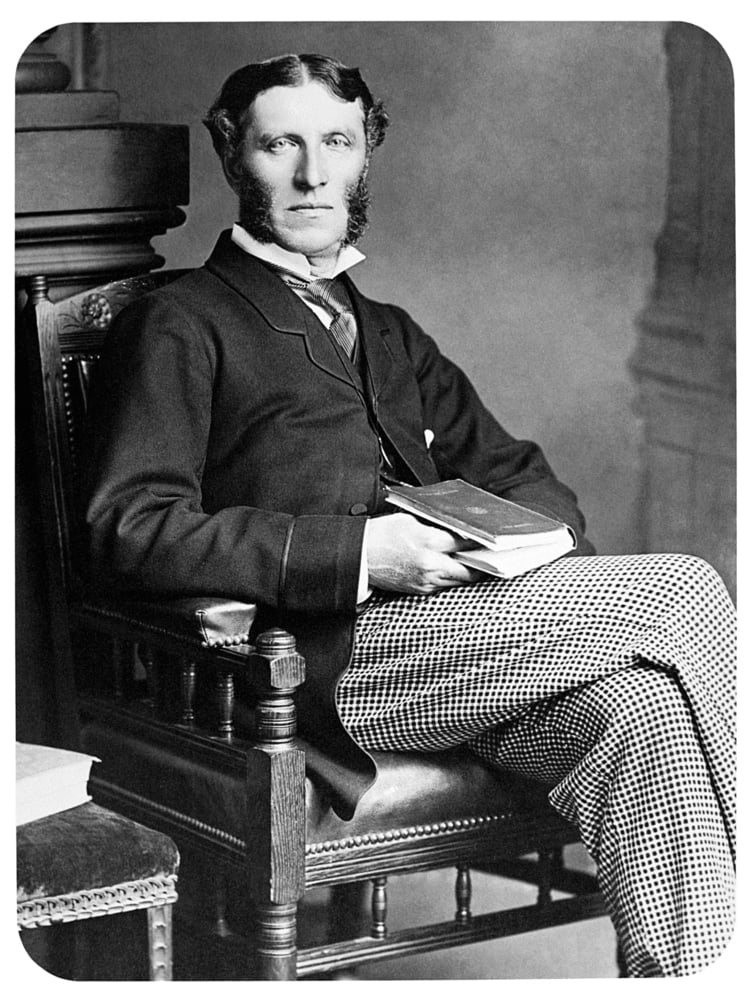Matthew Arnold, a Victorian poet in England and cultural critic, held the role of a school inspector. He hailed from a distinguished family that included his renowned father, Thomas Arnold, who served as the headmaster of the prestigious Rugby School. Matthew also had notable siblings, Tom Arnold, who was a literary professor, and William Delafield Arnold, a novelist and colonial administrator. The Arnold family was undoubtedly a highly accomplished and intellectual one.
Matthew Arnold was a Sage writer due to his reputation as a wise and thoughtful commentator on society and culture in the Victorian era. Arnold’s writings often explored themes related to education, morality, and the importance of culture in shaping society. Sage writing represents an evolution of ancient wisdom literature, where the author addresses and guides the reader on contemporary societal matters. This is typically achieved by incorporating discussions related to philosophy, history, politics, and economics in an accessible and non-technical manner. The concept originates with John Holloway’s 1953 book The Victorian Sage: Studies in Argument. Thomas Carlyle, Matthew Arnold, John Ruskin, and Henry David Thoreau are the famous Sage writers of their time.
In 1836, Matthew Arnold attended Winchester College. The following year, he returned to join his father’s school. During this time, he worked on several manuscripts, including poems and essays, and also engaged in writing in the Latin language.
In 1841, Matthew Arnold achieved an Oxford scholarship. During this time, he formed a close friendship with Arthur Hugh Clough a Rugby pupil who had been one of his father’s favourites. It’s important to note that he did not align himself with the Oxford Movement, a significant religious movement of the time.
In the following year, in 1842, Arnold received the sudden and unexpected news of his father’s passing. The year 1843 marked a significant achievement for Arnold as he won the Newdigate Prize for his poem Cromwell. He graduated in the following year with second class honours in Literae Humaniores. In 1849, Arnold reached another milestone in his literary career by publishing his inaugural book of poetry, titled “The Strayed Reveller.”
The year 1850 brought a sorrowful event as it witnessed the death of William Wordsworth, a close friend of Arnold. In tribute to Wordsworth, Arnold composed a set of Memorial Verses, which were subsequently published in Fraser’s Magazine. This publication served as a heartfelt homage to his departed friend.
In April 1851, secured the role of one of Her Majesty’s Inspectors of Schools. Just two months later, he entered into matrimony with Frances Lucy, the daughter of Sir William Wightman, a Justice of the Queen’s Bench. In 1852, Matthew Arnold released his second volume of poetry titled Empedocles on Etna and Other Poems. In 1853 published The Scholar-Gipsy, a narrative poem part of his collection of poems titled “Empedocles on Etna, and Other Poems.”
Matthew Arnold is often regarded as the third great Victorian poet, alongside Alfred, Lord Tennyson, and Robert Browning.
Arnold’s notable works include “The Popular Education of France” (1861), which later had its introduction published as “Democracy” (1879). In 1865, Arnold released the “Essays in Criticism: First Series,” while the “Essays in Criticism: Second Series” didn’t come out until November 1888, shortly after his passing.
In 1866, he published “Thyrsis,” a pastoral elegy dedicated to Arthur Hugh Clough, who had passed away in 1861. The character Thyrsis was inspired by Virgil’s work. Arnold’s significant work in social criticism, “Culture and Anarchy,” was published in 1869. His major work in religious criticism, “Literature and Dogma,” was published in 1873.
In 1883 and 1884, Arnold embarked on a tour of the United States and Canada, delivering lectures on topics such as education, democracy, and Ralph Waldo Emerson. He was honored as a Foreign Honorary Member of the American Academy of Arts and Sciences in 1883 and was a familiar presence at the Athenaeum Club.
Tragically, Matthew Arnold passed away suddenly in 1888 due to heart failure. Matthew Arnold’s grave at All Saints’ Church, Laleham, Surrey. Arnold had six children.
In “Portraits of the Seventies,” G. W. E. Russell characterized Arnold as “a man of the world entirely free from worldliness and a man of letters without the faintest trace of pedantry.”
